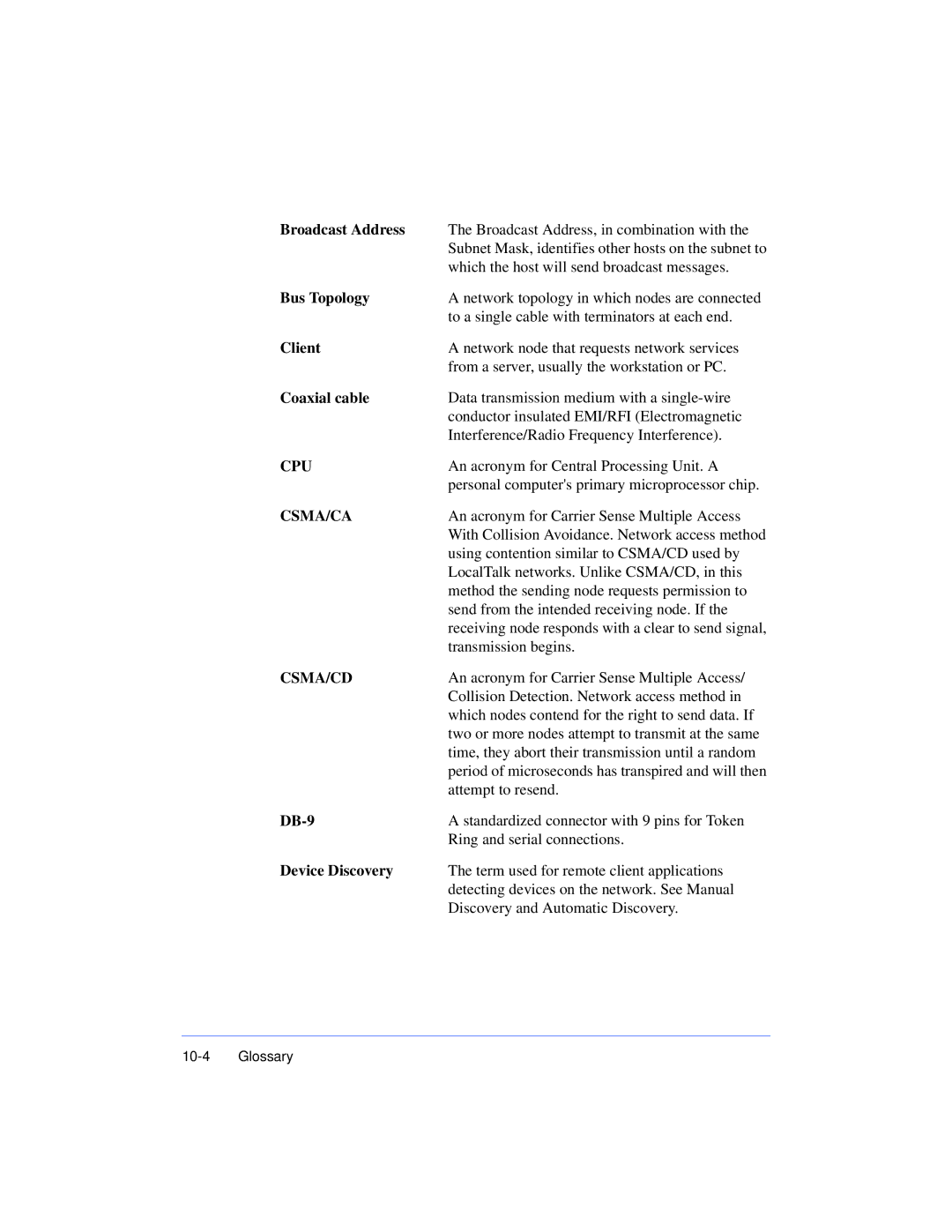Broadcast Address | The Broadcast Address, in combination with the |
| Subnet Mask, identifies other hosts on the subnet to |
| which the host will send broadcast messages. |
Bus Topology | A network topology in which nodes are connected |
| to a single cable with terminators at each end. |
Client | A network node that requests network services |
| from a server, usually the workstation or PC. |
Coaxial cable | Data transmission medium with a |
| conductor insulated EMI/RFI (Electromagnetic |
| Interference/Radio Frequency Interference). |
CPU | An acronym for Central Processing Unit. A |
| personal computer's primary microprocessor chip. |
CSMA/CA | An acronym for Carrier Sense Multiple Access |
| With Collision Avoidance. Network access method |
| using contention similar to CSMA/CD used by |
| LocalTalk networks. Unlike CSMA/CD, in this |
| method the sending node requests permission to |
| send from the intended receiving node. If the |
| receiving node responds with a clear to send signal, |
| transmission begins. |
CSMA/CD | An acronym for Carrier Sense Multiple Access/ |
| Collision Detection. Network access method in |
| which nodes contend for the right to send data. If |
| two or more nodes attempt to transmit at the same |
| time, they abort their transmission until a random |
| period of microseconds has transpired and will then |
| attempt to resend. |
A standardized connector with 9 pins for Token | |
| Ring and serial connections. |
Device Discovery | The term used for remote client applications |
| detecting devices on the network. See Manual |
| Discovery and Automatic Discovery. |
